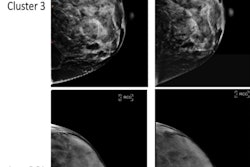Proposed cuts to the federal budget include gutting the National Breast and Cervical Cancer Early Detection Program (NBCCEDP), which has drawn the ire of health advocacy groups.
The Trump administration’s proposed budget for the 2026 fiscal year would eliminate all federal funding for the program and slash funding for research at the Department of Health and Human Services (HHS), including the National Institutes of Health (NIH).
“If Congress were to follow that guidance, it would more than guarantee that this program will not be able to survive,” said Molly Guthrie, vice president of policy and advocacy at Susan G. Komen.
The NBCCEDP was created in 1990 after Congress passed the Breast and Cervical Cancer Mortality Prevention Act. Since then, the program has assisted women with low incomes and no or inadequate insurance by providing them access to breast and cervical cancer screening. This also includes diagnostic services that are free or low-cost, where patients can go through a navigation pathway for proper treatment.
Since its inception, the program has diagnosed nearly 80,000 invasive breast cancers, over 25,000 premalignant breast lesions, more than 5,000 invasive cervical cancers, and over 248,000 premalignant cervical lesions.
Molly Guthrie from Susan G. Komen explains the benefits of the NBCCEDP for women with low income or no insurance.
The program is run through the U.S. Centers for Disease Control and Prevention (CDC), which grants federal money to states and territories of tribal nations. From there, the states contract with local grantees and providers to provide care for their communities.
By cutting federal funding for the NBCCEDP, these women may face larger financial barriers to screening services that can detect cancers earlier and at more treatable stages.
“It’s alarming to see the complete elimination of federal funding in the President’s proposed budget,” Guthrie said.
Komen advocates for funding and appropriations during the congressional cycle. Guthrie said Komen is doubling down on this, working with Congress to make them understand the consequences of eliminating the program.
“We’re using all of our advocacy tactics and utilizing our grassroots advocacy voices, but really ensuring that everyone across the country understands that this program is potentially on the chopping block and now is the time to step up and use your voice and make sure that lawmakers hear why this program matters and why it’s so vital that it remains in place,” Guthrie said.




















